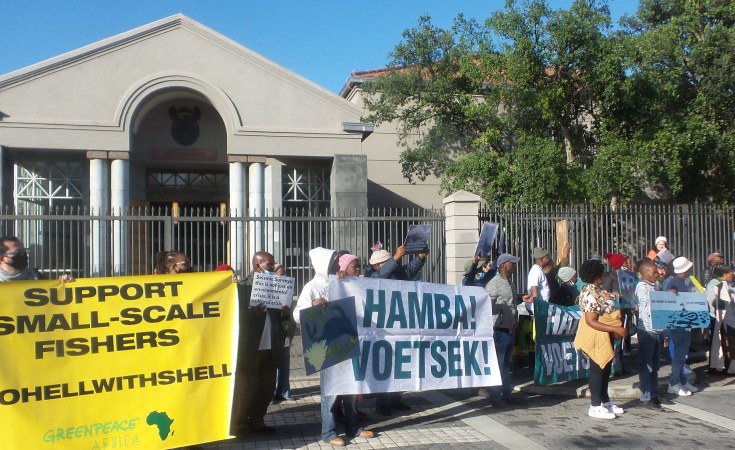Cape Town — The Eastern Cape High Court has reserved judgment in the leave to appeal application by the Minister of Mineral Resources and Energy, Impact Africa and Shell, Engineering News reports. The parties sought to appeal a ruling by the Makhanda High Court handed down in September, 2022 which found that the right granted to Shell to perform a seismic survey off the Wild Coast, an ecologically sensitive area, was unlawful.
Opposition against the oil giant's plan has been intense. Coastal fishing communities along with non-governmental groups including Sustaining the Wild Coast, All Rise, Natural Justice and Greenpeace Africa prepared to file leave to cross-appeal the court decision not to determine whether Shell and Impact Africa required an Environmental Authorisation ahead of the start of the seismic survey. This is due to the fact that a declarator - an action whereby a legal right or status is declared but nothing further is done - would clarify the nature of the organisation's obligations under both the National Environmental Management Act and the Mineral and Petroleum Resources Development Act within the context of Section 24 of the Constitution, which states: "Everyone has the right to: an environment which is not harmful to their health or well-being."
A final decision is expected to be made by the end of the year.
Background of the case
A 2014 government decision granted Shell permission to pursue seismic scanning of an area situated over 20km off the Eastern Cape coast. It resulted in a cascade of opposition that, to date, has lasted more than eight years.
While Shell claimed to be operating within the bounds of the law, due to its stakeholder consultation process as part of the Environmental Management Programme during 2013, and passing an Environmental Compliance audit, a potential "loophole" may been exploited by the petroleum corporation due to the fact that Shell received an environmental impact assessment in 2014, five years before small-scale fishers were granted fishing rights in 2019. Thus, this factor excluded the coastal communities' concerns from the Environmental Impact Assessment (EIA).
Coastal communities' struggle against Shell has been fraught with complications. In 2021, then-acting justice Avinash Govindjee dismissed an application to interdict the seismic survey on the basis that "irreparable harm" to marine species was not proved. Non-governmental groups slammed the decision. "The decision to allow Shell to continue with its plans to destroy the Wild Coast is very disappointing. Not only will the blasting destroy precious biodiverse ecosystems, but it will also destroy the livelihoods of local communities, all in the name of profit," said Happy Khambule of Greenpeace Africa.
Similarly, Pooven Moodley of Natural Justice said: "The outcome is very unfortunate, especially since the judge did not recognise the urgency of the interdict and the immediate threat the seismic surveys pose to the environment, marine life and local communities."


